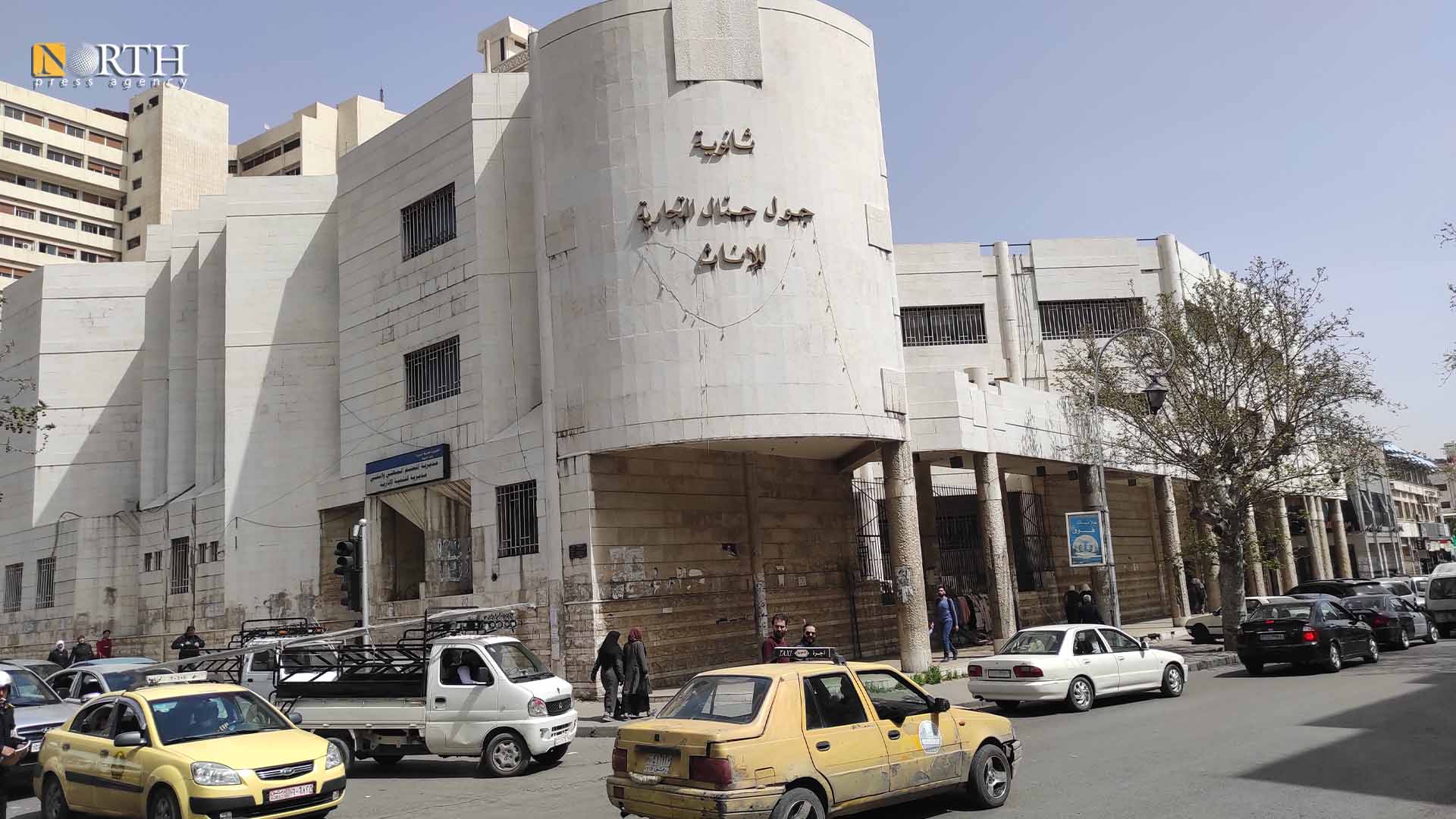Schools in Syria’s Damascus: overcrowding, worn-out books
DAMASCUS, Syria (North Press) – Rami Muhammad, a father of two students in the Syrian capital Damascus, bought textbooks from market due to the worn-out textbooks his children received from their school last week.
Despite being unspecialized in the education field, Muhammad says that some textbooks, as math and activity books, should be clean and new in order for students to be able to write in answers themselves.
The new school year began on September 5th in Syria’s government-held areas. Schools in Damascus distribute worn-out books to students, although new ones are available in large quantities at warehouses and private libraries, but at high prices.
The Syrian Ministry of Education supervises basic and secondary education, including private schools, and is directly responsible for curriculum and learning materials that are all distributed to students for free in the first through ninth grades.
The number of students registered in Syrian government schools for the new school year reached more than four million in 14,000 schools, according to the Ministry of Education.
Schools in government-held areas suffer from not only worn-out books, but also old and ruined desks, while sanitary facilities in schools have not been updated since the end of the last school year.
According to Syrian law, decisions of the Ministry of Education require that primary and secondary school students receive free books that the school can retrieve at the end of the school year.
“New books will be distributed only to students of the first, second, and third grades of elementary school,” said Ali al-Aboud, head of General Institution for Printing and Distribution of Government Books, on September 9.
“New books are distributed to students from the first grade to the ninth grade; 90% of books for the fourth grade students are new and the percentage decreases for higher grades,” he mentioned in a statement to the pro-government Watan newspaper.
Al-Aboud’s statement contrasts with what happened with Rami Muhammad’s two sons, who received worn-out books and have not even received English-language books.
Pharmacist Issa Izz al-Din, who is living in al-Mazah neighborhood, said that his two children complain of overcrowding in their classes, which contain over 60 students, exceeding the number stipulated in decisions related to student distribution within classes.
“When I asked my two children, one of whom is in sixth grade and the other in the seventh grade, about their first day in school, they said that they are like makdous )a dish of oil-cured eggplant that stuffed into a jar) in a reference to overcrowding in each class,” he added.
The pharmacist asked, “How can physical distancing be achieved in light of this overcrowding, and how can students be protected from the coronavirus epidemic?”

